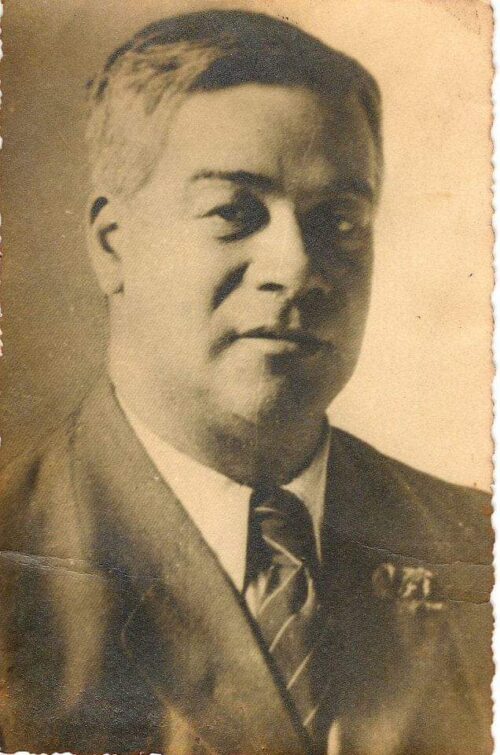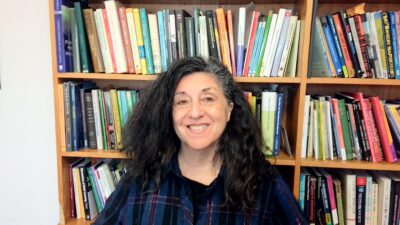Paulo Freire wrote Pedagogy of the Oppressed during his exile in Chile (1964-1969). He has since acquired worldwide fame as Latin America’s most important educator. While he was in Chile, it is unlikely that Freire would have heard of Luis Emilio Recabarren (LER), although perhaps the name would have been mentioned in passing as the founder of the Chilean Communist Party (CP). Freire became involved with some of the efforts in peasant education in Chile during his stay, and he credited the Chileans he worked with for advancing his political/pedagogical thought during this period. Nevertheless, there is no mention in the literature about Freire in Chile of the most notable Chilean educator, who, less than half a century earlier, had led workers’ ‘independent education’ in Chile, a feat without precedents in Latin America.
Recabarren (1876-1924) was a workers’ organizer in Chile during the first quarter of the 20th century. Little known in the Anglo-speaking world as an organizer, if at all, he was also a prolific writer, whose articles appeared daily in the abundant working-class press of the period. The main objective of his writings and of his organizing drives was the independent education of workers, understood as the education of workers by the workers themselves, with the purpose of attaining power. In pursuit of that task, workers would educate themselves in their own organizations and through their own press.
At one century away from independence from Spain, and still a semi-colony of England, Chile in Recabarren’s period lived in semi-colonial status in some areas, and under capitalist conditions in most, while feudal relations persisted in the countryside. In 1910, the year of the Chilean Independence Centennial, Recabarren wrote and published one of his most important essays: ‘Rich and Poor through a Century of Republican Life.’ This essay constituted the most scathing judgement of all that had not been accomplished since independence. Recabarren, himself an inheritor of the ideas of the Enlightenment, judged Chilean society based on all that which had been promised by the Liberators, the enlightened Masons who had conducted the process of Independence from Spain, and he found the country lacking in all areas. According to Recabarren, not a single promise had been accomplished. Particularly in the realm of education, the country lagged miserably, with high rates of illiteracy. Only men could vote, and they had to be literate; therefore, political power was completely in the hands of learned men – an upper-class intelligentsia – who originated from a landowning class and from an industrial class mostly connected to mining. With nitrate mining largely owned by British entrepreneurs, the miners in the north of the country constituted the bulk of the industrial working class, one that had to struggle directly with foreign interests in the area. It was among these workers and those in activities related to mining, such as shoremen, that Recabarren started his organizing work and press campaigns around 1903.
It was in a small port town in the North of Chile, Tocopilla, that Recabarren developed ideas about the importance of the local and briefly promoted the idea that a socialist model could flourish independently in an independent and progressive municipality. He enthusiastically embraced the mancomunal organization (workers’ collectives that combined mutual aid and resistance), which northern shoremen organizers had started in ports in the North of Chile, as an advanced form of proletarian organization. Through the paper he had agreed to take charge of in Tocopilla, El Trabajo, he conducted a very successful campaign directed to the founding of mancomunales in other places in the country. While in Tocopilla, and even though he was jailed for his activities, he was involved in the building of a workers’ centre in the Toco Desert that, among endeavours such as newspaper printing, library, and other cultural enterprises, would house schools for children and for adults. If not all worked as planned in Tocopilla and its surroundings, it certainly showed Recabarren and the northern workers what was possible when the local was in their hands.
By 1910, Recabarren had spent time in prison, had been exiled to Argentina, travelled to Europe, and his views had evolved from the legacy of the Enlightenment to Marxist perspectives. First in Argentina, and then in Europe, he came in contact with union organizing and cooperatives. Although workers in Chile had long organized in mutual aid and resistance societies, and then in the combination of both (mancomunales), Recabarren now thought the unions were a more advanced form of organization and advocated for them on his return to Chile. His next step was to organize a new party, Partido Obrero Socialista (POS), thus finally separating from the Democratic Party to which he had belonged for fifteen years, unable to move it to his more progressive politics. Founded in 1912, the POS would become the most important workers’ organization in the country, and one which would eventually lead the Chilean working class to organize in a federation (FOCH) and join international working-class organizations.
Philosophically speaking, Recabarren combined several schools of thought in his writings and practice. In The Educational Philosophy of Luis Emilio Recabarren (2021), I strive to show a progressive development in his thinking by analysing his writings chronologically. Nevertheless, there are influences that are present very early on, as is the one of Karl Marx, for example, and we can find earlier trends, such as utopian socialism and anarchism, still propping up occasionally in later writings. But, undoubtedly, Recabarren’s philosophy of education moved away from an early civilizing perspective to a revolutionary one. Some of the influences on these perspectives are easily recognizable as bodies of thought: Enlightenment, Humanism, Romanticism, Marxism. There are also the influences of movements, such as Anarchism, Socialism, and Communism, and of organizations, such as the First, Second, and Third Internationals. Once connected to international organizations, the path Recabarren chose to follow was the one of international communism and, as he himself claimed, there were later Leninist tenets that appeared quite early in his writings and in the struggles of the Chilean workers. Presenting in Congress in 1921, Recabarren claimed that in Chile there were no foreign agitators influencing the Chilean working class and that he, himself, had proposed, before 1917, that ‘the working class organization must be the supreme dictator of all human law’; thus he aimed to show that there was independence in the thought developed by the Chilean workers in touch with their own reality, which, in turn, they shared with an international working class.
Invited to the Soviet Union in 1922, he participated at the Fourth Congress of the International, representing his party, and at the Red International of Labour Unions (RILU), representing the Federation of Chilean Workers (FOCH). At his return, he wrote a comprehensive evaluation of the 1917 revolution and its gains, some of which he had been witness to when in Russia. He was convinced then that Chile could accomplish the same revolutionary feat and could do so without bloodshed but with organization.
One of Recabarren’s major accomplishments was to foster workers’ independent education in opposition to the Chilean state’s proposal for a civilizer education that would make workers more useful to their employers. Independent education was conducted in union halls and workplaces and centred on the education of workers by the workers themselves as to their role in society. This education was fostered in the working-class press, which, according to first-hand accounts, was read by the workers daily and read to each other when needed. The printshops for the working-class papers that Recabarren founded and directed himself also became places where the workers gathered to read, discuss, and plan. Evening cultural events featuring plays were a favourite activity, as were talks and conferences featuring speakers such as Recabarren himself, who would travel from mining town to mining town to deliver them.
Recabarren became a leader of international stature due to his participation in party creation and activism in Argentina and in Uruguay. In Europe, he met with the most outstanding revolutionary figures of the time and invited some of them to visit Chile. Thus, the Chilean working class had a chance to listen to the Spanish leader Pablo Iglesias in person, during his visit to Chile, and to Belén de Sárraga, a Spanish feminist activist, whose visit had a significant and lasting impact on the Chilean women involved in the working-class movement. Several feminist centres were founded in the country and named after her. In this context, Recabarren is considered an early feminist, or feminist activist, in some quarters in Chile. The advocacy for women’s issues was an important part of the working-class agenda, and women leaders were promoted to leadership positions.
In the Latin American context, Recabarren shared the stage with other intellectuals, such as José Carlos Mariátegui (1895-1930), from Peru, and Antonio Mella (1903-1929), from Cuba, and with revolutionaries such as Cuban José Martí (1853-1895) and Nicaraguan César Augusto Sandino (1895-1934), but none had such a lengthy and sustained involvement in the education of workers or succeeded like him in durable organizing efforts. Recabarren is barely mentioned when these famous names come up in the literature, in part because the education of workers has been overlooked in favour of revolutionary action, and newspaper activity not considered intellectual enough in academic circles. Rescuing his figure and writings, then, is a must for any field interested in working-class education.
The relevance of Recabarren as a pioneer of working-class education in Latin America is undeniable. He is not just an important historical figure, but his works have also endured the passing of time with organizations that still claim him as their founder, writings that inspire new generations, and examples of a transversal education with workers and other disadvantaged groups in mind. At a century away from his life and times, his accomplishments and those that came about because of the workers’ struggles of the first quarter of the 20th century hold important lessons for those struggling today in the context of neoliberal politics and economics.



